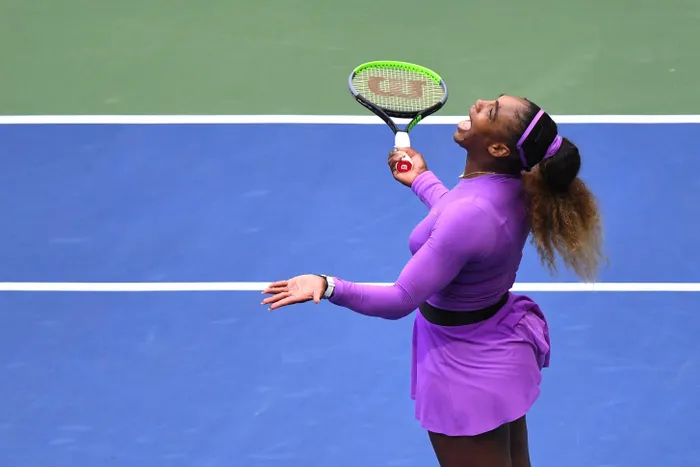Controversy, chaos, and culture: Why the US Open remains tennis’ most volatile stage

Serena Williams doesn't have good memories of the 2019 US Open final.
Image: Johannes Eisele / AFP
In the boiling cauldron of Arthur Ashe Stadium, where there is no roof and the crowd capacity is double that of any other Grand Slam, tennis transforms into something far more volatile than a simple contest of skill.
When a player walks onto that court, they face not just their opponent, but also the roar of a partisan crowd and the intense pressure of the moment. It’s this charged atmosphere that has made the US Open the stage for some of the sport’s most memorable and controversial confrontations.
One need only recall the 2019 women’s final, when then-world No. 1 Serena Williams clashed with umpire Carlos Ramos. Accused of receiving courtside coaching — something now permitted under revised rules — Serena vehemently denied the charge.
Instead of calming the situation, Ramos escalated it by handing down a series of penalties for unsportsmanlike conduct, costing her a point, then a game, and ultimately contributing to the unraveling of her match. That moment is still etched into the collective memory of the sport, as much for the tension as for Naomi Osaka’s breakthrough win.
Now in 2025, new chapters of US Open controversy are being written. Daniil Medvedev, a former world No. 1 with a long history of tension with New York crowds, found himself at the centre of yet another storm in his shock defeat to unseeded Frenchman Benjamin Bonzi.
The drama peaked on match point, when a photographer briefly wandered too close to Medvedev’s side of the court between Bonzi’s missed first serve and his second. Umpire Greg Allensworth, already infamous on tour for questionable calls, halted play and ejected the photographer—only to inexplicably award Bonzi another first serve.
Medvedev’s reaction was volcanic. He berated the umpire, turned to the crowd to fan the flames, and brought the match to a six-minute standstill. Bonzi, clearly rattled, even threatened to walk off the court and called for Medvedev to be disqualified.
Eventually, play resumed, and while Medvedev mounted a spirited comeback to force a fifth set, Bonzi held firm to seal a famous victory. The Russian was later slapped with a record $42,000 fine. It brought back memories of 2019, when Medvedev sarcastically told the Ashe crowd after a heated win, “I want all of you to know — I won this match because of you.”
Meanwhile, a different kind of controversy was unfolding involving 2017 French Open champion Jelena Ostapenko and American Taylor Townsend. During a crucial point in their match, a Townsend shot clipped the net and dropped over — an awkward, lucky break.
In such situations, players customarily offer an apologetic hand gesture, even though it’s not a rule. Townsend didn’t. And while minor, it marked a break from the etiquette that is deeply embedded in the sport. In over 40 years of observing tennis, it’s rare to see a player, no matter their ranking, forgo this basic courtesy.
For Ostapenko, already frustrated by the match outcome, the omission was a red rag. At the net, she let loose, calling Townsend “classless and uneducated.” The comment sparked immediate backlash, with many viewing it through a racial lens — particularly given the setting on Arthur Ashe Court and Townsend’s identity as a Black American.
Ostapenko’s words were indeed clumsy and ill-advised, and while they likely would have been said to any player under the same circumstances, the timing and language were unfortunate. It seemed she was seeing red, not black, but the optics—especially in today’s social climate—were difficult to ignore.
What these moments reflect more than anything is the chaotic theatre of the US Open itself. Officiating inconsistencies, questionable calls, and the unique tension of playing under the lights at Ashe continue to breed combustible moments. While no one condones poor sportsmanship or emotional outbursts, it's hard to ignore that many of these incidents are triggered — or at least inflamed — by decisions from the chair that seem either tone-deaf or inconsistent.
In the final analysis, the US Open remains tennis's most unpredictable Grand Slam — not just because of the calibre of competition, but because it pushes players to their emotional edge. Until umpiring standards rise and etiquette is more uniformly respected, matches at Flushing Meadows may continue to be remembered less for greatness and more for the drama that eclipses it.
Related Topics: